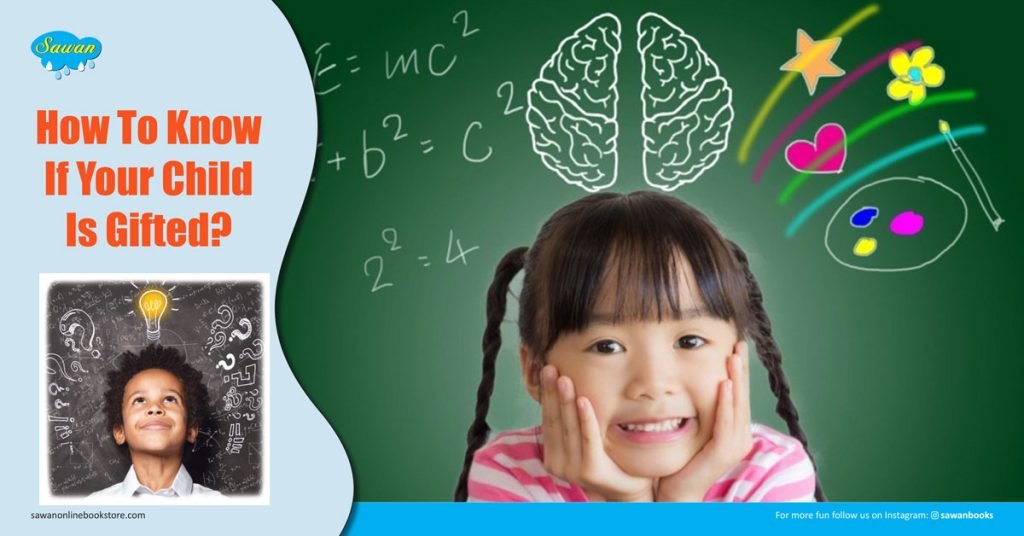Giftedness is frequently defined as a mental skill. However, not every brilliant youngster excels in the classroom. In comparison to their colleagues, certain people may have exceptional creative, artistic, musical, and/or leadership qualities. Giftedness might be specific to a single talent or more general. It’s also critical to educators and parents to recognise that it can occasionally be accompanied by unique learning deficits that have an impact on school achievement. It’s critical in these cases to assist a child in developing unique talents while also conquering any hurdles given by the special needs.
Any composite of ability and accomplishment tests, as well as observation and/or a study of the student’s portfolio of work, are frequently used to assess giftedness. A child’s activities both inside and outside of school, as well as cognitive abilities, inventiveness, and attitudinal and cognitive routines, could be considered.
How High Is A Gifted Child’s IQ?

The IQ of a gifted child will fall into one of the following ranges: 115 to 130 are mildly gifted. Those that are moderately gifted are between the ages of 130 and 145. Exceptionally gifted: 145 to 160. Whether compared to other individuals of a similar age, experience, or environment, gifted children display an advanced aptitude or aptitude from one or more specialised areas. These gifted individuals have exceptional thinking, reasoning, and judging abilities, necessitating the provision of special education programs and assistance in order for them to completely fulfil their potential and capabilities.
What Qualifies A Child As A Gifted Individual?

At its most basic level, gifted children are those who have a high level of intellectual abilities). Identification is usually accomplished through a mix of special tests and exams. So because the federal government does not enforce gifted programs in schools, the definition of giftedness varies by state, school district, and other factors.
In many circumstances, tests are used to evaluate if a child is gifted or not because comparing a child’s academic ability to classmates is an important means of measuring academic talents. Proficiency assessments like the ACT or the Woodcock-JohnsonJohnson Tests of Achievement are examples. Professional assessments can also be used to identify gifted individuals. They are more expensive but considerably more comprehensive. This strategy entails identifying a child’s strengths, weaknesses, learning style, and educational requirements.
Is Exceptional Ability a Disability?

Although some brilliant students may simultaneously have learning impairments like dyslexia, ADHD, or autistic disorder, giftedness is not considered a mental illness. Students who are twice excellent are referred to as twice-exceptional individuals (also known as 2e children. Identification of these kids frequently necessitates the assistance of a professional who can assess and distinguish between the two categories of exceptionality, which can sometimes overlap, making identification more challenging. 2e children require a specific blend of educational programs and support due to their unique abilities and features.
Both intellectual and social-emotional development are important for gifted youngsters. If bright individuals aren’t sufficiently challenged, the regular classroom could be a bad fit. That’s why it’s critical to seek out skilled services in your area. This could involve ability classification, gifted pull-out classes, or access to talented public schools, depending on the area as well as which school district you’re in. Outside school, gifted programs can provide a space for talented students to further pursue a specific area of interest or build social bonds with intellectually like peers. More information on gifted schooling and assistance choices can be found in our article on the subject.
What Are The Characteristics Of A Gifted Child?
Talented children are natural scholars who exhibit several of the following traits:
- They may have great abilities of perception and a feeling of the crucial.
- usually consists of an eye for the finer points of a situation.
- They may read extensively on their own, preferring novels and magazines published for older children.
What Are The Issues That A Gifted Child Faces?
● Fatigue and stress
● Attention and Organisational Problems
● Difficulty Forming Relationships
● Difficulty Remaining Patient
● Unrealistic Expectations
● Control Issues
● Being an Individualist
● Guilty Feelings
Conclusion – How To Support Gifted Children
Both intellectual and social-emotional development are important for gifted youngsters. If bright individuals aren’t sufficiently challenged, the regular classroom could be a bad fit. That’s why it’s critical to seek out skilled services in your area. This could involve ability classification, gifted pull-out classes, or access to talented public schools, depending on the area as well as which school district you’re in. Outside school, gifted programs can provide a space for talented students to further pursue a specific area of interest or build social bonds with intellectually like peers. More information on gifted schooling and assistance choices can be found in our article on the subject.

